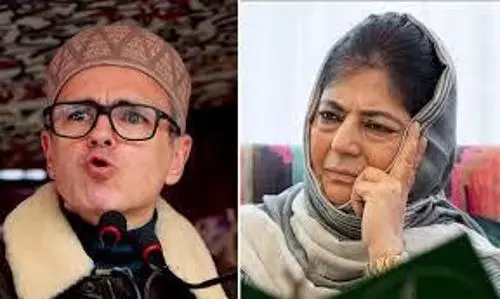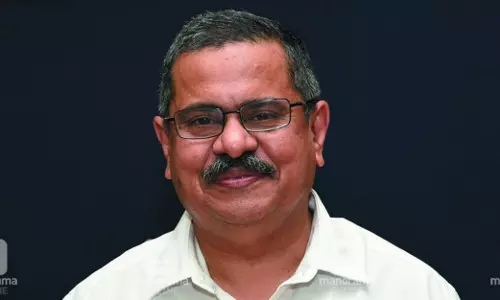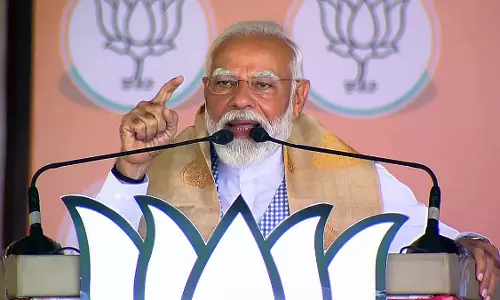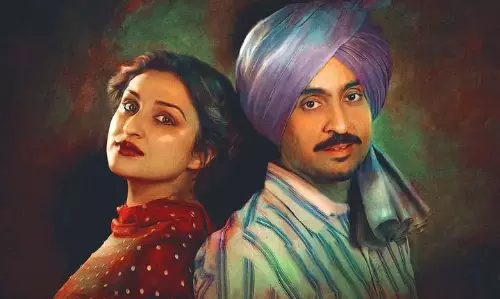
An Exponent of Dravidian culture
text_fieldsAnother leader of stature who took Tamil identity to the forefront of Indian democratic system, has bidden farewell.
Although leaders and parties bearing the heritage and reputation of Dravidian politicsstill exist in Tamil land, it is doubtful how many of those who imbibed the energy of Periyar EV Ramaswami Naicker's self-respect movement, remain in the scene. And that wil be the biggest void left by the departure of Kalaignar Muthuvel Karunanidhi. Even as he was traversing along the pothole-strewn path of pragmatic politics, he made it a platform for propagating ideas andcultural agitation. Through thathe elevated the language and culture, which would otherwise have been sidelined, to a 'classical' level. Perhaps that is Karunanidhi's singular political contribution. Saying this would be another way of paying tributes to Kalaignar who touched the inner recess of Tamil hearts.
Karunanidhi's demise came on a day very close to celebrating the 50th anniversary of his ascent to chief ministership. He occupied the chief minister's seat following the premature death of Annadurai. Since then he has had his share of ups and downs in politics, but never giving up the tradition of Dravidian politics in the process. Together with the anti-Hindi agitation, he took up as his mission the task of presenting Tamil language and culture before the world. His record as the only chief minister to raise a clenched fist against Indira Gandhi's Fascism during the Emergency, was another shining moment in history. But this was all just one facet his of his life. He had carved his own niche in the world of arts and literature. Kalaignar's main political weapon was his own creations in stories, poetry and drama. Films, that art of arts, too had felt his magic touch, sine he started script writing right at the age of 20, and having 40 scripts to his own credit. Perhaps it was this creative orbit that distinguished Karunanidhi and his politics. It was in parallel to adorning the throne of power politics, that he remained in love with art and literature. Not only that, he made a political agenda by integrating that creative dimension into his ideology. A shining example of this was the World Classical Tamil Conference organised eight years ago.
Although he continued with his love for the creative realm till the fag end of his life, anybody would agree that during an intervening period Karunanidhi too had his deviations from the Periyar track. The agenda of his party underwent major transformations. That was how Tamil politics turned into a tug-of-war against Anna DMK for the seat of power. That tussle was won by both Jayalalita and Karunanidhi in turns. Another misfortune of Karunanidhi was his compulsion to succumb to the bane of India's father-son politics. With the reins of the Dravidian party reaching the hands of sons, they became characters in corruption stories of a kind never heard before. Such corruption even contributed to the fall of the UPA government, that lasted full ten years but thus failed to win a third term. Although the Central government had earlier dismissed Karunanidhi's government on charges of corruption, that was all part of the political revenge typical of the Emergency era. But the DMK of the new century was on an entirely different track. That was how he had to witness his dear children going behind bars.
History has it that Karunanidhi became a politician at the age of 14, on hearing the speech of Alagirisamy, the leader of Justice Party formed by Periyar. Now 80 years since then, where his position in Indian political scene? It is a fact that the anti-casteist and rationalistic ideas, which Periyar launched against Brahmin supremacy, have now become largely weak. But one cannot lose sight of the fact that through the political movements borne out of those thoughts, Tamil language and culture have found a distinct position. Kalaignar was moulding a struggle, sparked by Periyar to resist the conquest by north Indian savarna Hindu ideology, in a cast of pragmatic politics. In the new age of Fascism, even a memory of those struggles by Periyar and Kalaignar would constitute a remarkable political act.






















.jpg)
